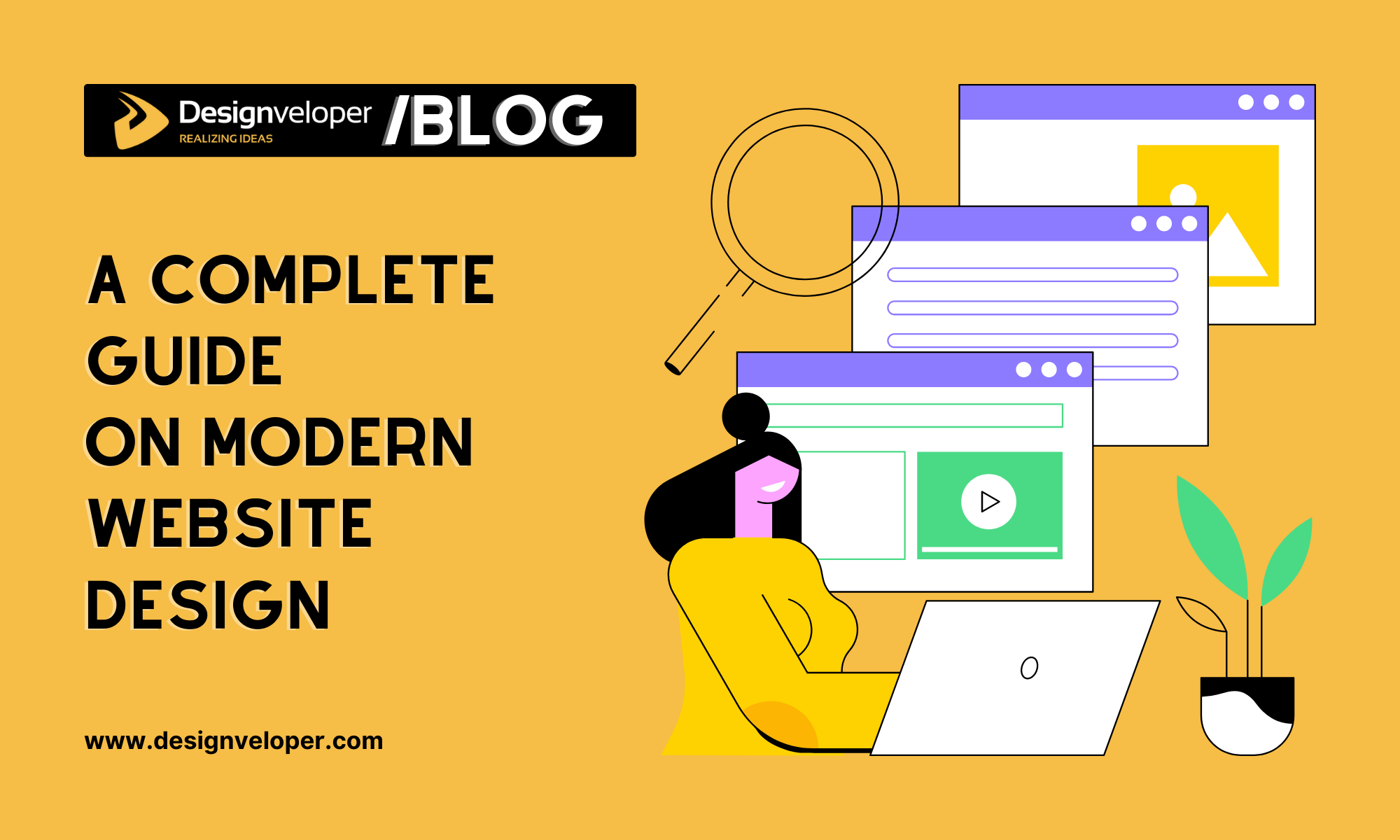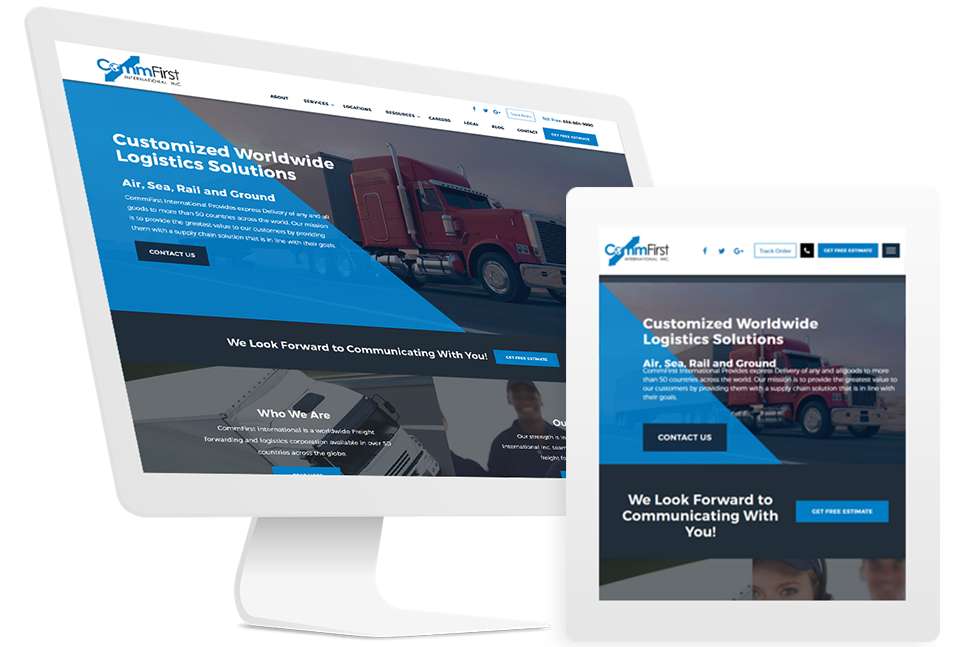Comprehensive Website Design Solutions from Strategy to Completion
Leading Tips for Developing an Impactful Website Design That Transforms
In today's digital landscape, the value of an impactful website style can not be overstated, specifically when it concerns transforming site visitors into consumers. To accomplish this, one need to take into consideration a selection of variables, including understanding the target market, focusing on user experience, and optimizing for mobile platforms. Additionally, the tactical use engaging call-to-actions and a distinct visual hierarchy plays an important function in directing individuals via their trip. As we check out these necessary aspects, it ends up being noticeable that the success of your site depends upon even more than just visual appeal; it requires a thoughtful strategy to layout and performance.

Understand Your Target Audience
Recognizing your target audience is essential to efficient site layout, as it lays the foundation for developing an engaging customer experience. Recognizing that your users are, including their demographics, preferences, and actions, enables designers to tailor the site's web content, design, and capability to satisfy certain needs.
Carrying out thorough marketing research is crucial in this procedure. Studies, interviews, and analytics can give beneficial insights right into user expectations and discomfort factors. By assembling this data, developers can produce individual personalities that represent different sections of the audience, making sure that design choices are notified and relevant.
Moreover, recognizing the target audience helps in picking appropriate style components such as color pattern, typography, and images that reverberate with customers. A website that talks directly to its audience promotes a feeling of connection and depend on, urging longer gos to and greater conversion rates.
Inevitably, a user-centered approach to site design not just improves customer satisfaction but also sustains service objectives by driving engagement and loyalty. By focusing on the demands and choices of the target audience, a website can efficiently serve its function and accomplish desired results.
Prioritize Individual Experience
To improve the general effectiveness of an internet site, focusing on customer experience (UX) is necessary (Website Design). A properly designed UX guarantees that site visitors can browse the site effortlessly, locate information quickly, and engage with material meaningfully. This leads to boosted individual complete satisfaction and higher conversion prices
Begin by executing intuitive navigation. Menus must be realistically structured, enabling individuals to locate vital areas of the site with marginal initiative. Consistency in design aspects, such as color schemes and typefaces, fosters familiarity, which is essential for maintaining individual engagement.
Furthermore, take into consideration the packing speed of your site. A hold-up of just a couple of seconds can bring about substantial drop-offs, as users are much less likely to wait on a slow-loading page. Improving photos and enhancing code can boost performance and keep site visitors.
Moreover, clearness in material presentation is important. Use succinct, appealing language and separate text with visuals to improve readability. By focusing on customer experience, you not only produce a more satisfying environment for visitors but additionally enhance your brand's trustworthiness. Eventually, a focus on UX is an investment in the lasting success of your internet site.
Maximize for Mobile Instruments
Optimizing for mobile devices is critical in today's digital landscape, where an increasing variety of customers accessibility websites with mobile phones and tablet computers. A mobile-friendly style not only improves individual experience however likewise plays a substantial duty in boosting internet search engine positions. To attain this, it useful reference is vital to embrace a responsive design that instantly adapts to various screen dimensions and positionings.
Packing rate is another crucial aspect; mobile individuals are generally much less person and expect fast access to details. By prioritizing mobile optimization, you guarantee that your web site continues to be competitive and efficiently involves a more comprehensive target market.
Usage Compelling Call-to-Actions
A site's performance commonly rests on its capacity to guide visitors toward wanted actions, making compelling call-to-actions (CTAs) vital parts of layout. CTAs function as the pivotal points that direct individuals to engage with the website, whether that means buying, signing up for an e-newsletter, or downloading and install a resource.
To produce effective CTAs, clearness is critical. Use succinct language that plainly interacts the activity you desire the individual to take.
In addition, the design of CTAs ought to stand apart without being meddlesome. Employ contrasting shades and clear font styles to ensure they capture interest. Additionally, consider making use of directional signs, such as arrows or pictures, to guide customers toward these buttons. By focusing on these elements, organizations can dramatically improve user engagement, driving conversions and inevitably accomplishing their website's goals.
Emphasis on Visual Pecking Order
Efficient website layout depends greatly on a well-structured aesthetic pecking order that overviews customers Visit Website via web content perfectly. By arranging elements in a fashion that focuses on info, developers can enhance customer experience and assist in decision-making. This involves making use of size, color, contrast, and spacing purposefully to draw interest to one of the most vital components of a web page.
Using larger font styles for headings and subheadings establishes a clear difference between different areas, permitting users to check material effortlessly. Furthermore, utilizing contrasting colors for switches and calls-to-action can capture user attention and urge interaction. Whitespace is another necessary part; it stops mess and enables users to concentrate on vital messages without disturbances.
Pictures and graphics must enhance the message while likewise sticking to the established hierarchy, reinforcing the general message (Website Design). Consistency in layout components, such as shade systems and typography, more strengthens the visual pecking order, making navigating user-friendly

Final Thought
In final thought, efficient website layout requires an extensive understanding of the target audience, prioritization of user experience, and mobile optimization. Inevitably, a well-executed website layout serves as a crucial element in driving individual actions and accomplishing business objectives.